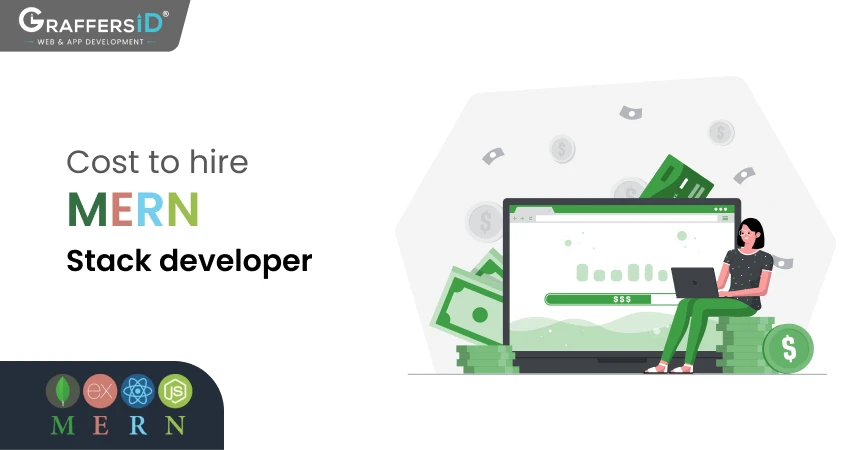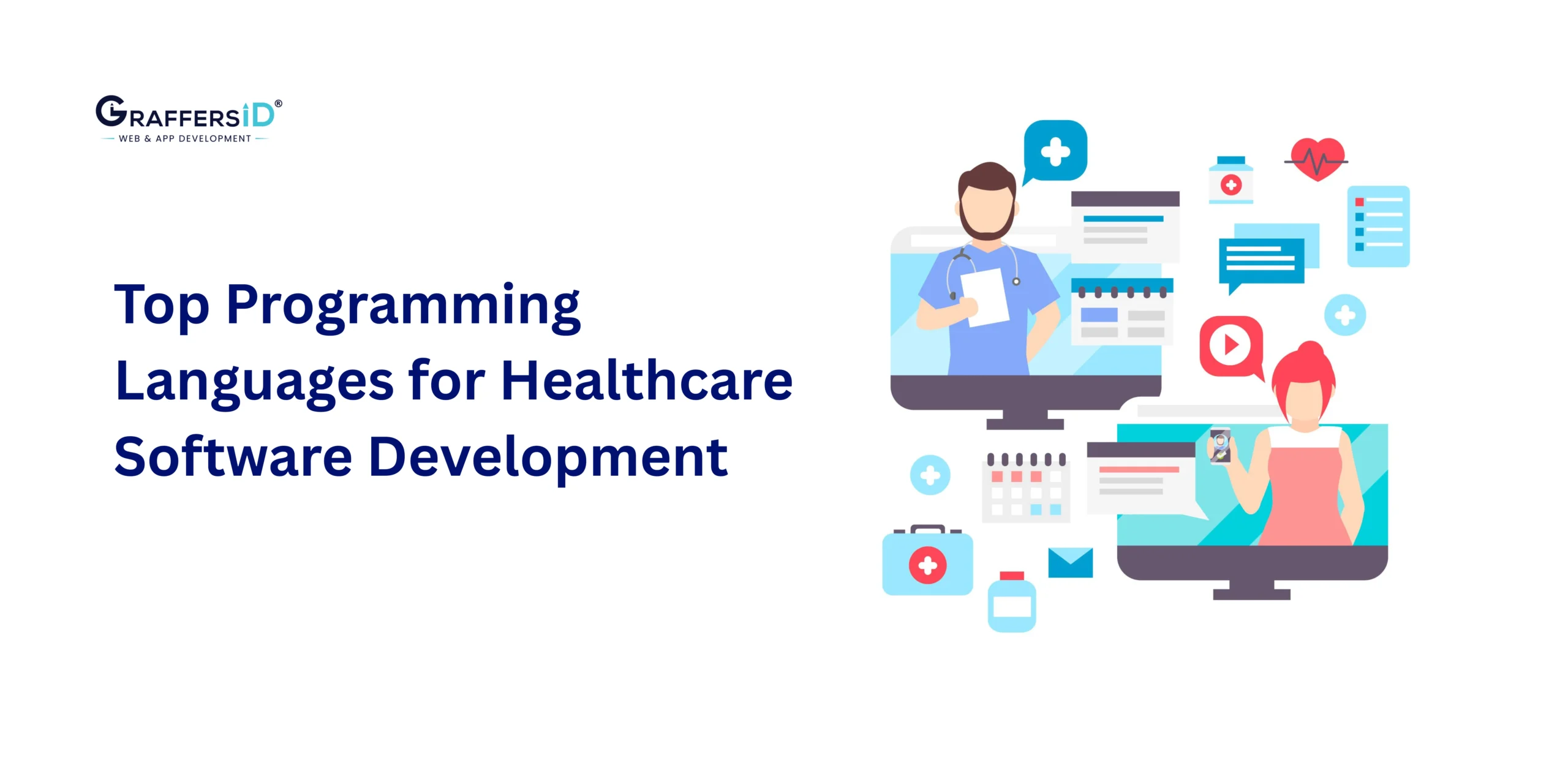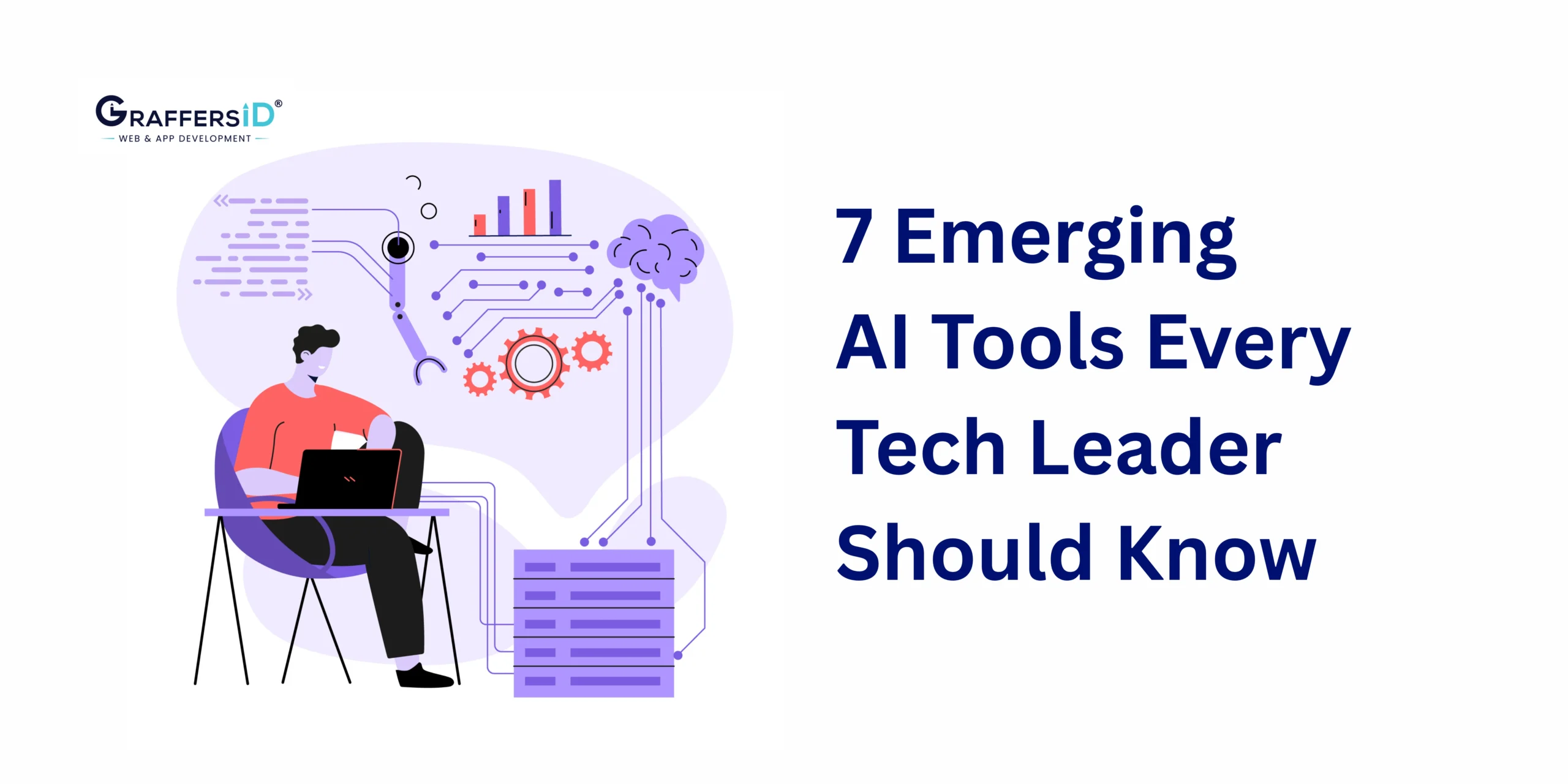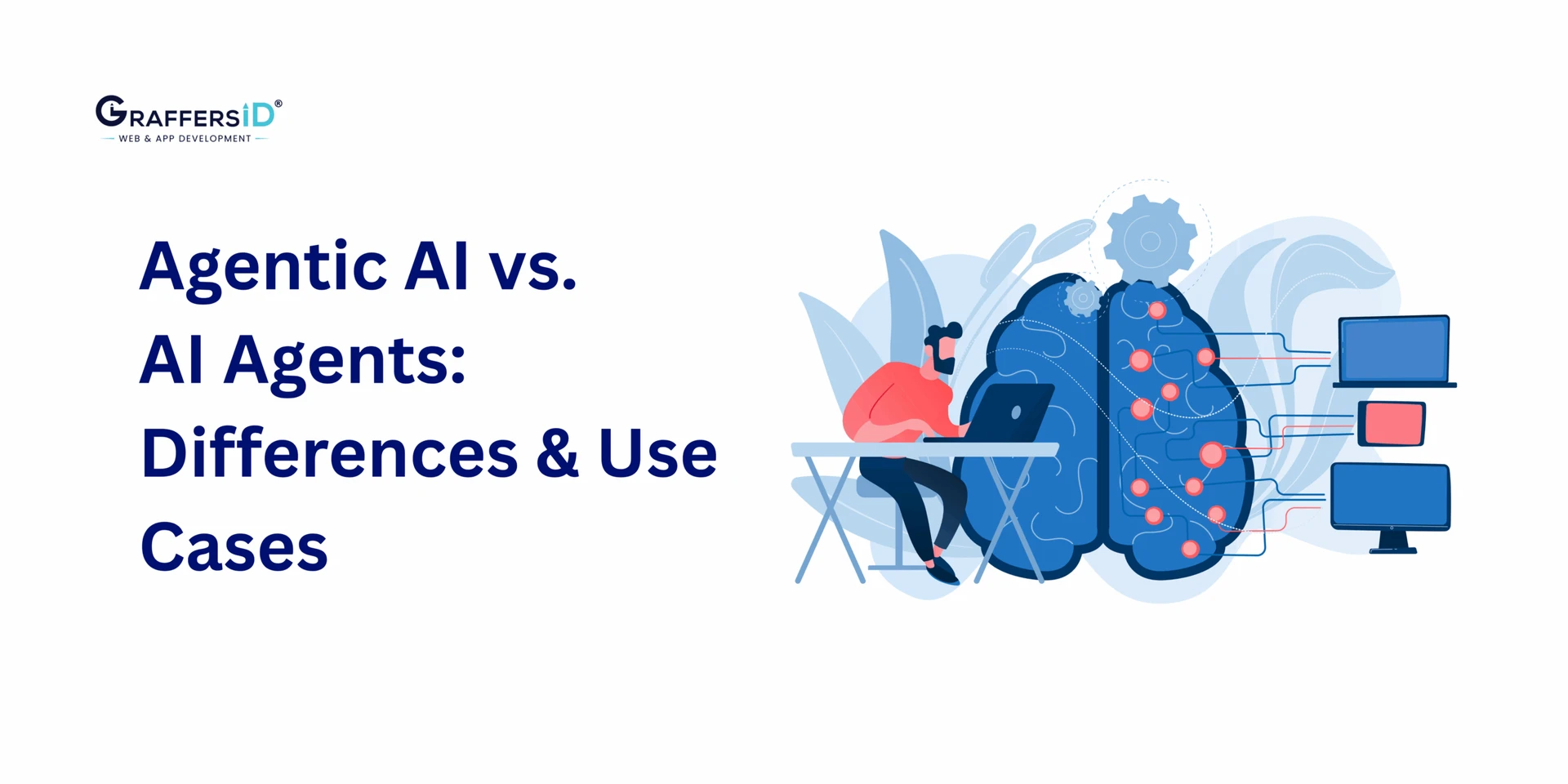Innovation is one of the substantial parts of technology, and it’s constantly evolving and touching the sky daily. The primary justification for the revisions is that users are not happy with any one creation. We desire modern products that are simple to use and must last forever in every way. Distinct users experience different experiences, which are typically never-ending. To create a complete application, website designers mostly used JavaScript and conventional HTML coding techniques. These days, they employ sophisticated technological stacks like Mern and Mean. Before continuing, it’s essential to understand the development cost to hire MERN stack developers. In this article, we will learn every aspect of hiring committed Mern stack developers. After reading the entire post, you’ll understand how much it costs to hire a Mern stack developer.
What is a Mern Development Stack?
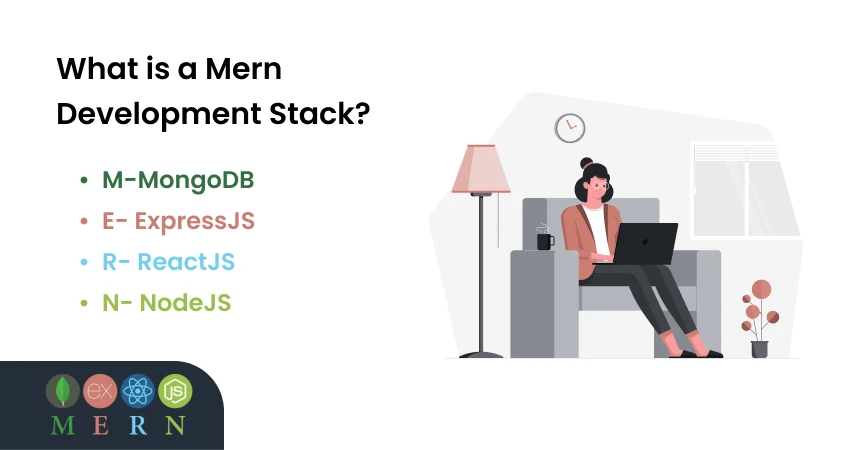
MERN is a concept that combines various JavaScript technologies into one. It is particularly effective for web development, which incorporates all business requirements.
The software engineers agree that MERN Stack is the best option for creating cutting-edge websites and apps with an eye-catching user interface. We must comprehend the resources before moving on to higher Mern stack developers. There is a significant demand for it because of its fierce competition from other technologies.
- M-MongoDB, a NoSQL database management system.
- E– ExpressJS, a NodeJS backend web application framework.
- R– ReactJS is a JavaScript library that creates user interfaces based on UI components.
- N– NodeJS, JavaScript may now execute a JS runtime environment outside browsers.
The development process becomes smooth and facile by utilizing the right technology. Mern is integrated into one package by the following open-source parts such as:
- MongoDB
- Express JS
- React JS
- Node JS
Every element we have listed is a valuable asset to the stack. They must deliver functional, responsive, and appealing web and app development processes.
The Power of Offshore Mobile and Web Development
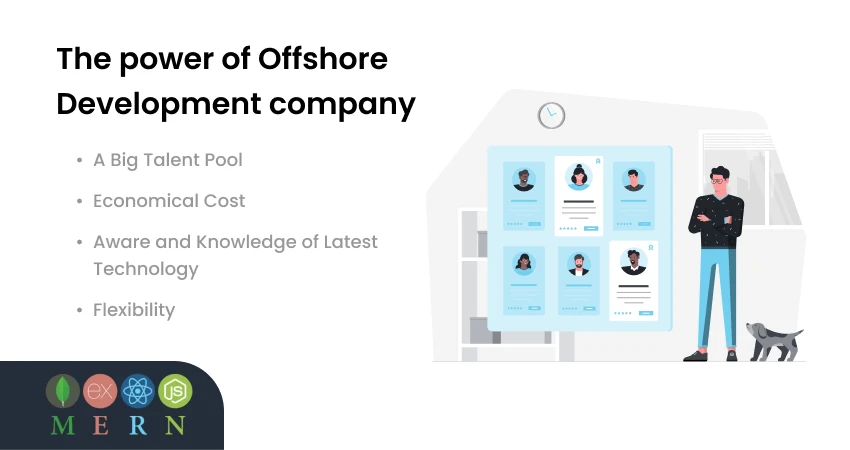
Create magic by Hiring a MERN Stack Developer from an Offshore Mobile and Web Development Company. Most businesses exhibit embraced weekend growth and quickly rise to the top of their respective industries in a short span. The majority of us must be interested in learning the secret of success. We are interested in learning more about the method and its real purpose. Most significantly, they have replaced their conventional and antiquated procedures with contemporary ones.
They are regarded as rule breakers or industry transformers because they frequently advance along the way. We must be intelligent and adaptable to excel in this field. With innovation, it will be possible for us to operate efficiently and contribute in a variety of ways to the sector. Yes, that goes with hiring Mern stack programmers from a reputable offshore development company of mobile apps; you can carve out your profitable web development solutions.
You can reap many more lucrative advantages from the offshore development process, particularly regarding the cost of hiring Mern stack developers.
-
A Big Talent Pool
Only those resources that are intelligent, qualified, and possess every level of competency in the profile are hired by and preferred by offshore mobile app development organizations with more significant challenges.
The best part is that you can be free from all stress by working with reputable Mern stack developers—or any other programming-based developers who can turn any challenging needs into a smash hit and a user-centric solution.
Whatever goals you have for your initiatives, they will surely meet them.
-
Economical Cost
Your ability to save money is the most significant advantage of offshore web development.
The Offshore Development Company acts as your helping hand in recruiting inexpensive Mern stack developers while guaranteeing the same quality, rich, and satisfactory solutions as regional countries’ resources. This is unquestionably better than hiring expensive resources from the local governments.
-
Aware and Knowledge of Latest Technology
These days, technological advancements happen quickly. Therefore, to produce more excellent web development solutions, it’s crucial to choose Mern stack developers who know about the newest technologies and trends in that industry.
That’s where offshore web development centers step in, giving you access to the most knowledgeable and technologically advanced resources.
-
Flexibility
In terms of flexibility, you may rely on offshore web development businesses. If the Mern stack developers you hired cannot meet your expectations, they will retain the support of more qualified and experienced developers.
Even they have a qualified crew to handle and keep an eye on any technological problems that may arise throughout the project’s growth.
What Are Offshore Development Services?
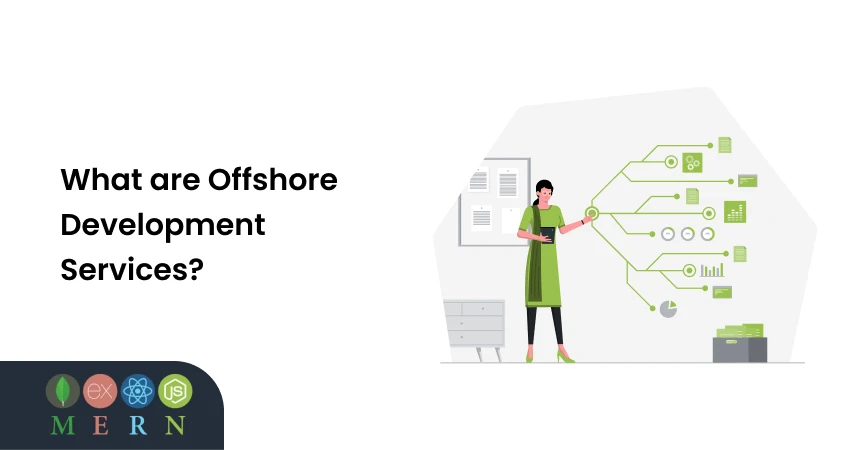
Offshoring is the process through which a business establishes a new office and a committed team of developers in a different nation that offers offshore development services. They are typical employees in every way, except they are based overseas and don’t work locally.
There are numerous reasons a business would decide to build one of these so-called offshore software development centers.
Offshoring was about locating pricing not available domestically; today, it’s about finding the best talent for your company’s goals. While your rivals are left squabbling over scraps at home, committed staff is a strategic advantage that enables you to expand with highly competent professionals from tech hotspots worldwide.
Want to know What is the MERN Stack Used For?
The Cost to Hire a Mern Stack Developer
Let’s come to the other part of the blog. The foremost question that pops into our mind is: how much does a business cost to hire a Mern stack developer? There’s no need to search here and there, giving stress to your eye because the details provided below will give you abundant knowledge about what will cost to hire Mern stack developers and more aspects related to it.
The most important fact is the cost to hire a Mern stack developer varies by area. The cost of living and numerous other employment aspects are the fundamental causes. There are several major tech hubs available for recruiting seasoned engineers all over the world. Mern developers’ most affordable travel destinations are Asia, Africa, Eastern Europe, Southern America, and Central America.
There are various costs for hiring offshore Mern stack developers from particular regions. In southern and Central America, salaries for Mern stack developers should fall between 30 USD and 50 USD per hour. A development range of 25 USD to 50 USD per hour is available in Eastern Europe. However, development costs in Africa and Asia are the lowest, ranging from 18 to 40 USD per hour.
Several excellent firms are on the market for outsourcing web development projects to offshore Mern stack developers. At the same time, the cost depends on the company’s quality and the development process involved. It is advised to locate a hub that provides excellent resources for fulfilling all requirements.
Learn More about Mean Stack vs Mern Stack: Which is Better Technology Stack?
What is the average salary for MERN stack developers in different regions?
As businesses worldwide continue to embrace digital transformation, the demand for skilled MERN stack developers is on the rise. However, the average salary for these professionals can vary significantly depending on factors such as geographic location, level of experience, and industry demand. In this article, we’ll explore the average salary for MERN stack developers in different regions to provide valuable insights for both aspiring developers and hiring managers.
1. North America
North America, particularly the United States, is known for offering competitive salaries to tech professionals, and MERN stack developers are no exception. In tech hubs like Silicon Valley, New York City, and Seattle, experienced MERN stack developers can command six-figure salaries, often ranging from $100,000 to $150,000 per year or even higher for senior roles. However, salaries may vary in other regions across the continent, with mid-level developers typically earning between $80,000 and $120,000 annually.
2. Europe
Europe boasts a thriving tech scene, with cities like London, Berlin, and Amsterdam emerging as hotspots for tech talent. Salaries for MERN stack developers in Europe tend to be slightly lower than those in North America but are still quite competitive. In countries like the United Kingdom and Germany, experienced developers can expect salaries ranging from £40,000 to £70,000 or €50,000 to €80,000 per year, with variations based on factors such as skill level and demand within specific industries.
3. Asia
Asia is home to rapidly growing tech markets, including India, China, and Singapore. While salaries for MERN stack developers in Asia may be lower compared to Western counterparts, the cost of living is often significantly lower as well. In tech hubs like Bangalore, Hyderabad, and Pune in India, salaries for mid-level MERN stack developers typically range from ₹6,00,000 to ₹12,00,000 per annum, with higher salaries in cities like Mumbai and Delhi-NCR.
4. Oceania
Australia and New Zealand are known for their high quality of life and burgeoning tech industries. In cities like Sydney, Melbourne, and Auckland, salaries for MERN stack developers are competitive, with mid-level professionals earning anywhere from AUD 80,000 to $120,000 per year. The demand for tech talent in these regions continues to grow, driving salaries upward.
5. Middle East and Africa
The Middle East and Africa are increasingly becoming destinations for tech talent, with cities like Dubai, Tel Aviv, and Cape Town attracting developers from around the world. While salaries in these regions may vary significantly depending on factors such as the local economy and demand for specific skills, experienced MERN stack developers can expect to earn competitive salaries ranging from $40,000 to $100,000 or more annually.
Top Strategies for reducing the cost of hiring MERN stack developers
For startups and businesses operating on a tight budget, this can present a significant challenge. Fortunately, there are effective strategies that can help mitigate the costs associated with hiring MERN stack developers without compromising on quality or expertise. In this blog post, we’ll delve into actionable tactics that can optimize your budget while still attracting top talent in the field.
Define Clear Job Requirements:
One of the most crucial steps in reducing hiring costs is to have a clear understanding of the skills and experience you require from a MERN stack developer. By defining specific job requirements, you can streamline the recruitment process and attract candidates who precisely match your needs. Avoid vague job descriptions that may attract overqualified applicants or individuals who lack the necessary expertise, ultimately leading to wasted time and resources.
Utilize Freelance Platforms and Remote Work:
Freelance platforms such as Upwork, Freelancer, and Toptal offer access to a global pool of MERN stack developers at competitive rates. Leveraging these platforms allows you to tap into talent from around the world, often at a fraction of the cost compared to hiring locally. Additionally, embracing remote work enables you to eliminate overhead costs associated with maintaining a physical office space, further reducing your hiring expenses.
Offer Equity or Profit-Sharing Options:
For startups and emerging businesses with limited financial resources, offering equity or profit-sharing options can be an attractive alternative to traditional compensation models. By providing developers with a stake in the company’s success, you can incentivize them to contribute their skills and expertise in exchange for potential long-term gains. This approach not only reduces upfront hiring costs but also aligns the interests of developers with the overall objectives of your business.
Implement Skills Assessment Tests:
To ensure that you’re investing in developers who possess the requisite skills and proficiency in the MERN stack, consider implementing skills assessment tests as part of your recruitment process. These tests can help you evaluate candidates’ technical capabilities and problem-solving abilities, allowing you to make informed hiring decisions without relying solely on resumes or interviews. Additionally, conducting such assessments upfront can help weed out unqualified candidates early on, saving you time and resources in the long run.
Foster a Positive Company Culture:
Building a positive company culture can significantly impact your ability to attract and retain top MERN stack talent, often at lower compensation levels. Developers are increasingly prioritizing factors such as work-life balance, professional development opportunities, and a supportive team environment when evaluating job opportunities. By cultivating a culture that values employee well-being and growth, you can differentiate your company from competitors and attract candidates who are willing to accept lower salaries in exchange for a fulfilling work experience.
Invest in Training and Development:
Rather than exclusively focusing on hiring developers with extensive experience in the MERN stack, consider investing in training and development programs for entry-level or junior candidates. By nurturing talent internally, you can groom developers to become proficient in the technologies and frameworks relevant to your projects, ultimately reducing your reliance on expensive external hires. Furthermore, offering opportunities for professional growth and advancement can increase employee loyalty and retention, further optimizing your hiring costs over time.
Can outsourcing MERN stack development help reduce costs?
Outsourcing MERN stack development can offer several compelling cost benefits for businesses:
- Access to Specialized Talent: One of the primary advantages of outsourcing MERN stack development is gaining access to a pool of highly skilled and experienced developers. Outsourcing companies often have teams of developers who specialize in MERN stack development, meaning they possess the expertise needed to deliver high-quality solutions efficiently.
- Cost Savings on Human Resources: Hiring and retaining skilled developers in-house can be a significant financial burden for businesses. By outsourcing MERN stack development, companies can avoid the costs associated with recruiting, training, and maintaining an in-house development team. Additionally, outsourcing allows businesses to scale their development resources up or down based on project requirements, providing greater flexibility and cost control.
- Reduced Infrastructure Costs: Developing software in-house requires investments in infrastructure, including hardware, software licenses, and development tools. Outsourcing MERN stack development eliminates the need for such investments, as the outsourcing partner typically bears the responsibility of providing the necessary infrastructure for development.
- Faster Time-to-Market: Outsourcing MERN stack development can accelerate the development process, leading to faster time-to-market for the final product. Outsourcing companies are experienced in delivering projects within tight deadlines, leveraging their streamlined development processes and dedicated teams to ensure timely project delivery.
- Focus on Core Competencies: Outsourcing MERN stack development allows businesses to focus their resources and attention on their core competencies, such as product innovation, marketing, and customer service. By entrusting development tasks to external partners, companies can allocate their internal resources more effectively, driving overall business growth and competitiveness.
Outsourcing MERN stack development can be a strategic decision for businesses looking to leverage cost savings, access specialized talent, and accelerate time-to-market for their web applications.
Conclusion
When you are just beginning to consider developing interactive and exciting websites in this cutthroat market, your rivals are already creating their own. To succeed, you have to stay ahead of the rat race.
The development of MERN stacks is a potent tool for creating web pages and applications. And the experts who can make your dreams come true are MERN stack developers.
Reach out to Incentives for professional MERN stack development services if your company wants to create excellent online or mobile apps with appealing UI designs to attract clients quickly. The MERN Stack makes application development easier since it combines several technologies, including libraries, frameworks, and databases.
The MERN Stack experts know how to work effectively with all open-source MERN components, such as Express JS, MongoDB, Node JS, and React JS.
You will undoubtedly be steered to an excellent solution at a cheaper cost by outsourcing your web development projects to offshore Mern stack developers. If you’re seeking the best expert to work on your project, GraffersID can help you with that. Our company has provided services to several clients by employing experts. Just call us to hire a Mern stack developer with the whole experience and work history. We’d be glad to assist you.
